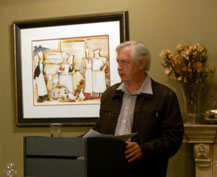Latest News Archive
Please select Category, Year, and then Month to display items
29 March 2023
|
Story Samkelo Fetile
|
Photo Simba Matema
 From left to right: Prof Jean Bernard Lekana-Douki, Director General at the CIRMF; Prof Francis Petersen, Rector and Vice-Chancellor of the UFS; and Prof Jean-Fabrice Yala, Scientific and Technical Director at the CIRMF.
From left to right: Prof Jean Bernard Lekana-Douki, Director General at the CIRMF; Prof Francis Petersen, Rector and Vice-Chancellor of the UFS; and Prof Jean-Fabrice Yala, Scientific and Technical Director at the CIRMF.
The University of the Free State (UFS) recently welcomed senior members from the International Centre for Medical Research in Franceville (CIRMF), Gabon to sign a Memorandum of Understanding (MoU) between the two entities.
CIRMF is a non-profit medical research centre that was established in 1974. Its primary focus is on diagnosing infectious diseases that pose immediate problems in Gabon and the Central African sub-region. The centre is dedicated to improving public health through various initiatives, including the training of Gabonese health executives in doctoral and post-doctoral education.
“The signing of the MoU with CIRMF is a step in the right direction as the UFS continues to strengthen its footprint on the African Continent. This is seminal in driving the university’s internationalisation processes and opening an avenue to expanding research networks, especially in the African continent,” said Bonolo Makhalemele, Coordinator of strategic projects at the Office for International Affairs, UFS.
In the interest of developing broader research collaborations, the CIRMF delegation met with some UFS academics in a series of engagements, particularly in the Health Sciences Faculty and the Natural and Agricultural Sciences Faculty. “The integration of knowledge and practices that emanate from the continent provides opportunities for the co-creation of knowledge that can be shared with the rest of the world,” said Kagiso Ngake, Coordinator for Partnerships, Collaborative Degrees, and Outgoing Mobility at the Office for International Affairs, UFS.
A concrete roadmap was established to formalise the collaborations that resulted from these engagements and will commence as soon as April 2023. “We have laid a solid foundation and are on the way to a strong and rich partnership!” exclaimed Prof Jean Bernard Lekana-Douki, Director General at the CIRMF.
Prof Francis Petersen, Rector, and Vice-Chancellor of the UFS, further highlighted how the newly established partnership with the CIRMF aligns with the mandate of the UFS Vision 130 of expanding the UFS Africa research network.
Afrikaans place names were not only given by Afrikaner people, says professor.
2012-09-25
 |
Prof. Peter Raper delivering his lecture on South African place names.
25 September 2012 |
Prof. Peter Raper, honorary professor at the Department of Linguistics and Language Practice, delivered a public lecture in Clarens earlier this month. The theme of the lecture was “From Stone Age to GPS: The fourth edition of the South African Place Names Dictionary”.
Prof. Raper shared the historical development of the project as well as the challenges and other interesting observations associated with the topic. He elaborated on the dramatic change in the focus of his research on place names in South Africa.
It was previously assumed that all of the Afrikaans place names were given by the Afrikaner people and that changing these place names was consistent with the mandate of the South African Geographical Names Council (SAGNC) to transform place names. Prof. Raper said more in-depth research revealed that a significant number of place names are actually translations of original San names – into Afrikaans, Khoi and the Bantu languages. He told the audience that given the constitutional stipulation that no cultural group’s heritage may be removed, this discovery calls into the question the modus operandi of the SAGNC.
Prof. Raper’s lecture was part of the conference programme of the Third International MIDP IV Symposium that took place on the Qwaqwa campus. The MIDP (Multilingual Information Development Programme) is a project sponsored by the Province of Antwerp. The theme for this year’s symposium was “Multilingualism for Empowerment” and was presented in collaboration with the University of Antwerp.